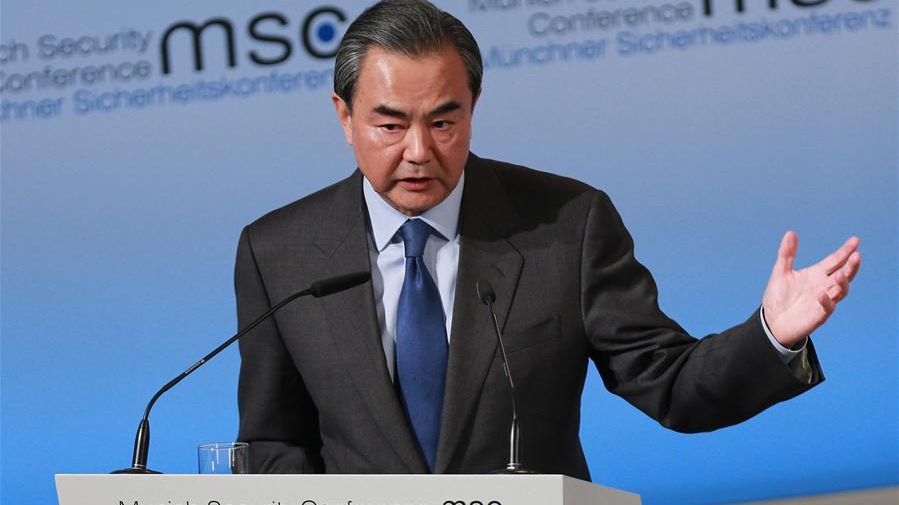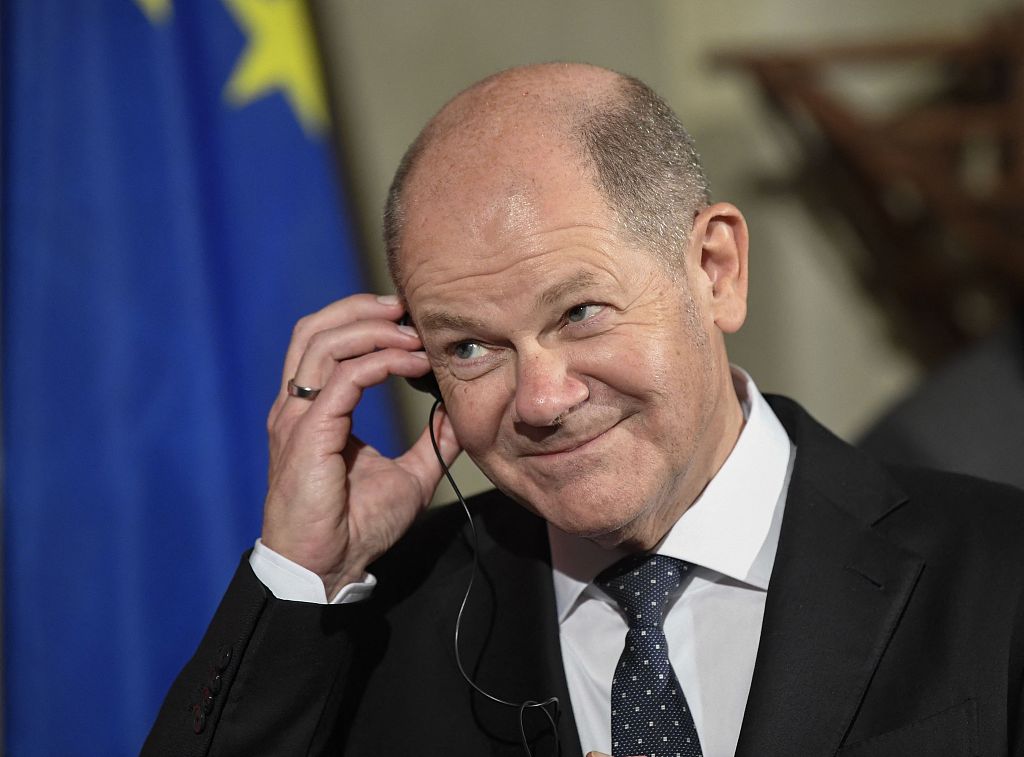
Wang Yi, director of the Office of the Foreign Affairs Commission of the Communist Party of China Central Committee, delivers a keynote speech during the Munich Security Conference in Munich, Germany, February 18, 2023. /Xinhua
Wang Yi, director of the Office of the Foreign Affairs Commission of the Communist Party of China Central Committee, delivers a keynote speech during the Munich Security Conference in Munich, Germany, February 18, 2023. /Xinhua
Editor's note: Radhika Desai is a professor of political studies at the University of Manitoba in Canada. The article reflects the author's opinions and not necessarily the views of CGTN.
Speaking at the annual Munich Security Conference that has gathered NATO, EU and other important world powers every year since 1963, Wang Yi, director of the Office of the Foreign Affairs Commission of the Communist Party of China (CPC) Central Committee, delivered a message of sanity, peace and development. With the intervening pandemic and the conflict over Ukraine having so radically disrupted the world order, Wang's speech outlined China's distinctive approach to world affairs – a community with a shared future for mankind, in Chinese President Xi Jinping's words – based on dialogue and consultation, cooperation and trust and focussed on peaceful development.
Development was the overriding imperative. It could be pursued expeditiously only through respect for sovereignty and non-interference in the internal affairs of other countries, the founding principles of the UN Charter and integral to China's Five Principles of Peaceful Coexistence. Wang called for the rejection of economic war and noted that China will never seek hegemony. Having achieved such spectacular success in pursuing peaceful development, China has every motivation to continue along this path.
On the all-important question of the conflict in Ukraine, Wang invited the world, specifically Europe, where the conference and the conflict were taking place, to think clearly about what efforts should be made to stop warfare, what framework is required to bring lasting peace and stability in Europe, and what role Europe should play to realize its strategic autonomy. He also warned that some forces might not want to see peace talks to materialize.
In a sane world, such a speech and vision, especially coming from the most important rising power in the world, would have been welcomed with open arms. Nonetheless, the major headlines were being made by those keeping the Ukraine conflict ongoing, and even extending it beyond that hapless country. NATO Secretary General Jens Stoltenberg recalled the expansion of NATO's scope to Asia on the spurious grounds that China's "ambitions … challenge our interests, security and values."
Yet, there are countries, which noticed the high price of this conflict and woke up from the U.S. narrative.
German Chancellor Olaf Scholz, while repeating the usual platitudes about Ukraine belonging in a "free and united Europe" also said that caution was better than hasty decisions, unity was better than going it alone and it was vital to avoid an unintended escalation.

German Chancellor Olaf Scholz listens during a joint statement with the French President and Poland's President after their meeting during the Munich Security Conference in Munich, Germany, February 17, 2023. /CFP
German Chancellor Olaf Scholz listens during a joint statement with the French President and Poland's President after their meeting during the Munich Security Conference in Munich, Germany, February 17, 2023. /CFP
French President Emmanuel Macron went further. In a speech some dubbed "provocative," he said that Europe had yet to deal properly with the end of the Cold War. It had to find a way of dealing with Russia that did not involve regime change and allowed Russia "to build something sustainable for itself." Nevertheless, read beside his concern that Europeans had failed to carry much of the world with them in their stance in the conflict, this list was likely a plea to his allies to take satisfaction in this and conclude a negotiated peace agreement with Russia.
Europe is paying so much for a war that has been the U.S.'s idea so that many say that this war is actually a war against Europe, particularly its industrial base. It cannot afford to extend the war to China. Accordingly, popular anger against the war is growing in Europe.
Given this, there is every possibility that Wang's speech and China's coming plan for a negotiated peace will fall on fertile European ground, whether the U.S. accepts this development with grace or without, is the lookout of the Joe Biden administration.
(If you want to contribute and have specific expertise, please contact us at opinions@cgtn.com. Follow @thouse_opinions on Twitter to discover the latest commentaries in the CGTN Opinion Section.)